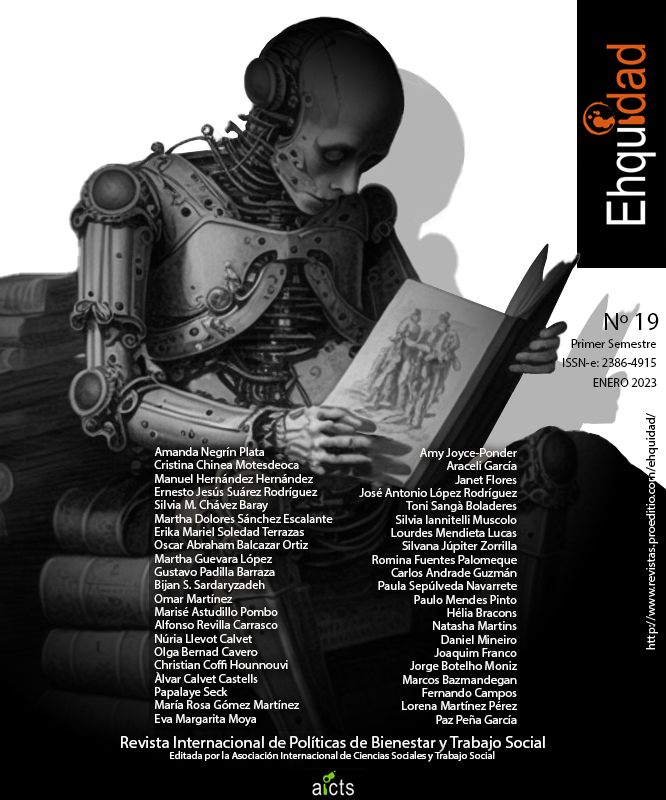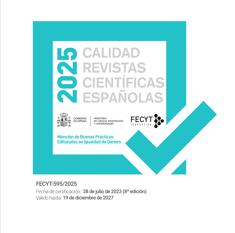Gender Equity in Classrooms. Do we educate for it?
DOI:
https://doi.org/10.15257/ehquidad.2023.0010Keywords:
Gender equality, Coeducation, Gender rols, StereotypesAbstract
The present investigation arises to know the educational reality related to the existence (or not) of sexist traits in boys and girls in the Early Childhood and Primary Education stage. It will be analyzed whether the family, educational and social context influences the children's conception of these traits, carrying out quantitative questionnaires for infant, first, second and third cycle primary school students and teachers, to find out their opinions and their approach in schools. These forms will be made by Google Form for the primary stage and teachers and paper questionnaires for the infant stage, aimed at corroborating or not, the problem, the objectives and the hypotheses raised, to two concerted schools, SAFA from Úbeda and from Villanueva del Arzobispo and a public one, Father Manjón de Sorihuela del Guadalimar.
From the analysis of the results, we reach a series of conclusions that confirm that there are indeed sexist conceptions of gender both in Early Childhood Education and in Primary Education, and that despite the fact that there is a large part of the teaching staff committed to this issue, there is still much work to be done, being of special importance the cooperation between country, family, society and school.
Downloads
References
Abalde, E. y Muñoz, J.M. (1992). Metodología educativa I. Xornadas de Metodoloxía de Investigación Educativa (A Coruña, 23-24 abril 1991), coordinadores Eduardo Abalde Paz, Jesús Miguel Muñoz Cantero. A Coruña: Universidade da Coruña, Servizo de Publicacions, 89-99. https://ruc.udc.es/dspace/handle/2183/8536
Alario, A. y Anguita, R. (1999). ¿La mitad de la humanidad forma parte de la diversidad?: el sexismo en las aulas y la coeducación como alternativa. Revista interuniversitaria de formación del profesorado, 36, 33-43. file:///C:/Users/34638/Downloads/Dialnet-LaMitadDeLaHumanidadFormaParteDeLaDiversidad-118043%20(1).pdf
Cabeza, A. (2010). Importancia de la coeducación en los centros educativos. Pedagogía magna, 8, 39-45. file:///C:/Users/34638/Downloads/Dialnet-ImportanciaDeLaCoeducacionEnLosCentrosEducativos-3627975%20(1).pdf
Calzado, I. (2019). Metodologías de la investigación cualitativa [Material de aula]. Asignatura metodología de la investigación. Centro Universitario Sagrada Familia, Úbeda, Jaén.
Cantos, V. (2014). Coeducación y ciencia: una programación de evolución en educación primaria (trabajo fin de grado). Universidad de Sevilla, Sevilla.
Castilla, A.B. (2008). Coeducación: pautas para su desarrollo en los centros educativos. Escuela abierta (II), 11, 49-85. file:///C:/Users/34638/Downloads/Dialnet-Coeducacion-3088185%20(1).pdf
Cordero, L. (2013). Barreras para el abordaje de la coeducación en infantil y primaria. Cuestiones de género: de la igualdad y de la diferencia, 8, 201-221. DOI: http://dx.doi.org/10.18002/cg.v0i8.887
Eliseo, J. (2015). Educando para prevenir la violencia de género desde las aulas: el caso de los centros de educación infantil y primaria (CEIPS) gallegos. Innovación educativa, 25, 327-342. DOI https://doi.org/10.15304/ie.25.2861
Engels, F. y Marx, K. (2004). Manifiesto comunista (Vol. 115). Ediciones AKAL.
García, R., Martínez, A.M, Morales, C. y Vásquez, J. (2011). Enseñar la justicia social en educación infantil. Revista iberoamericana sobre calidad, eficacia y cambio en educación, 9 (4), 15-34.
Malmagro, I. (2019). Análisis de los ajustes y desajustes en coeducación y en cuestión de género entre las diferentes leyes educativas españolas y los libros de texto de educación Primaria (trabajo fin de grado). Universidad de Sevilla, Sevilla.
Montané, A. (2015). Justicia social y educación. Revista de educación social RES, 20, 106-107.
Moreno, E. y Márquez, C. (2016). Determinantes implicados en la construcción de la violencia de género. El caso de la escuela primaria en una provincia de España. Archivos analíticos de políticas educativas, 24 (6). https://epaa.asu.edu/ojs/article/view/2132/1720
Moreno, J.A., Alonso, N. y Martínez, C. (2005). Por una mayor coeducación e igualdad de sexo en la enseñanza de las actividades acuáticas. II Congreso Internacional de Actividades Acuáticas, 136-159. Murcia.
Muñoz, V. (2010). ¿Enseñamos a convivir con equidad en las escuelas? (tesis). Universidad Academia de Humanismo Cristiano, Puente Alto.
Organización Mundial de la Salud. (2000). Promoción de la salud sexual. Recomendaciones para la acción. En O. P. Sexología. (Ed.), Conferencia Promoción de la salud sexual. Recomendaciones Para la Acción, 1-64. Guatemala.












